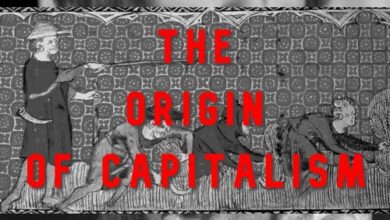Spanish civil war Winner Causes consequences Importance
Spanish Civil War
A political and military conflict occurred in Spain, between 1936 and 1939. In this article we will let you know about the Spanish civil war.
| Data | |
|---|---|
| Date | 1936-1939. |
| Place | Spain. |
| Belligerents | Nationalists vs. Republicans. |
| Outcome | Victory of the nationalists. |
Winner of the Spanish Civil War
In March 1939, Colonel Casado staged a coup in Madrid and the Republicans surrendered. On March 28, the national army entered Madrid, and in three days occupied the rest of the country. On April 1, 1939, Franco signed the statement that ended the war .
The Spanish Civil War was a political and military conflict that occurred in Spain, between July 18, 1936 and April 1, 1939 .
This began as a result of an attempted coup, led by different groups known as right-wing nationalists, who responded to ideologies opposed to the elected government .
Thus, its objective was to overthrow the Popular Front government, which had won the February 1936 elections and was made up of socialists , communists and anarchists .
Supported by Nazi Germany and fascist Italy , the Nationalists, led by General Francisco Franco , defeated the Republicans, who had the support of the Soviet Union and some 50,000 volunteers from allied countries.
It is estimated that more than half a million Spaniards died during this war .
Enhance your reading: What happened in the battle of Stalingrad/definition/causes
Causes and consequences of the Spanish civil war
Causes
The main reason for the outbreak of the Spanish civil war was the opposition of conservative sectors of society to the reforms proposed by the governments of the second republic, established in 1931, after the abolition of the monarchy.
Among these proposals were the agrarian reform (which forced to hand over the ownership of the land to whoever worked it), the dissolution of the religious orders and the seizure of the assets of the Catholic Church .
An additional motive was the belief of landowners, senior army commanders and the ecclesiastical hierarchy, that the republican government would try to implant a socialist regime similar to that established by the Bolsheviks in Russia, after the 1917 revolution.
These conservative sectors were concerned about high unemployment , the multiplication of workers’ strikes , attacks on the church and the increase in political violence .
Consequences
Among the main consequences of the Spanish civil war are the following:
- The establishment of a dictatorship headed by Franco, which lasted until his death in 1975. He exercised a fierce repression that left around 114,000 people illegally murdered and thrown into mass graves.
- The forced exile of the supporters of the republic , who had to flee from Spain for fear of being assassinated by the Francoists. There were an estimated 250,000 permanent exiles, many of whom settled in Latin America.
- The crisis of the Spanish economy , affected by the war effort and the devastation of the war, which caused more than 100,000 deaths due to hunger and various diseases.
- The division of many Spanish families , due to hatred and resentment between relatives who joined different sides, and to mutual accusations of executions and war crimes.
Enhance your reading: Characteristics of the Holocaust: Definition/causes/effects
Importance of the Spanish Civil War
The Spanish Civil War was the immediate precedent of World War II , since it consolidated the rapprochement between Italy and Germany. In addition, it was the laboratory that these powers used to test the weapons and combat tactics they would use in the war against the Allies.
The two most important political parties in present-day Spain, the Popular Party (PP) and the Spanish Socialist Workers Party (PSOE), are heirs to the sides that fought in the Spanish civil war: the Nationalists or Francoists and the Republicans.
